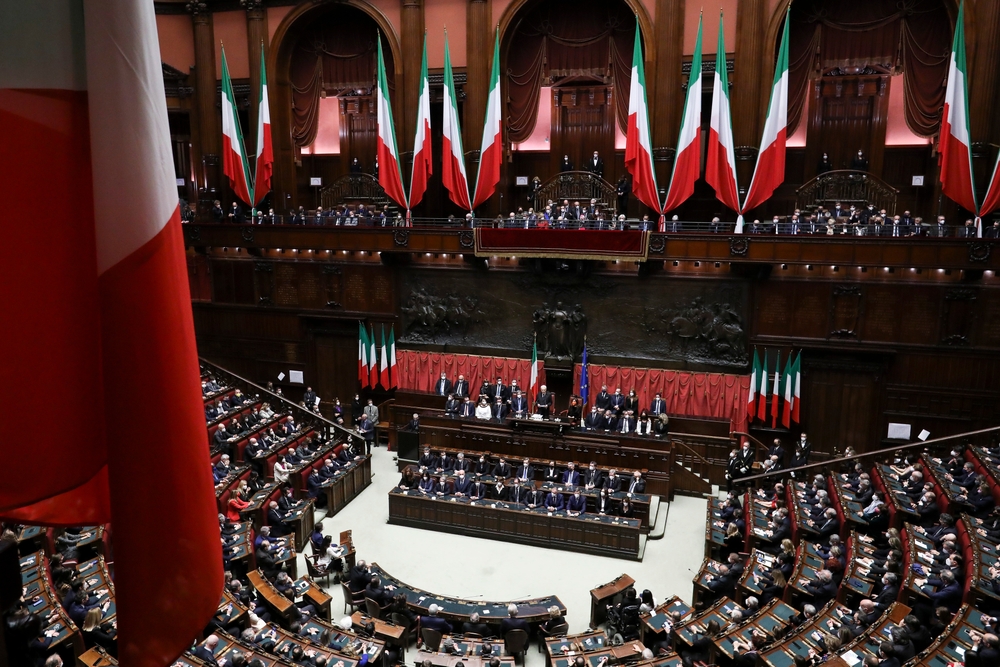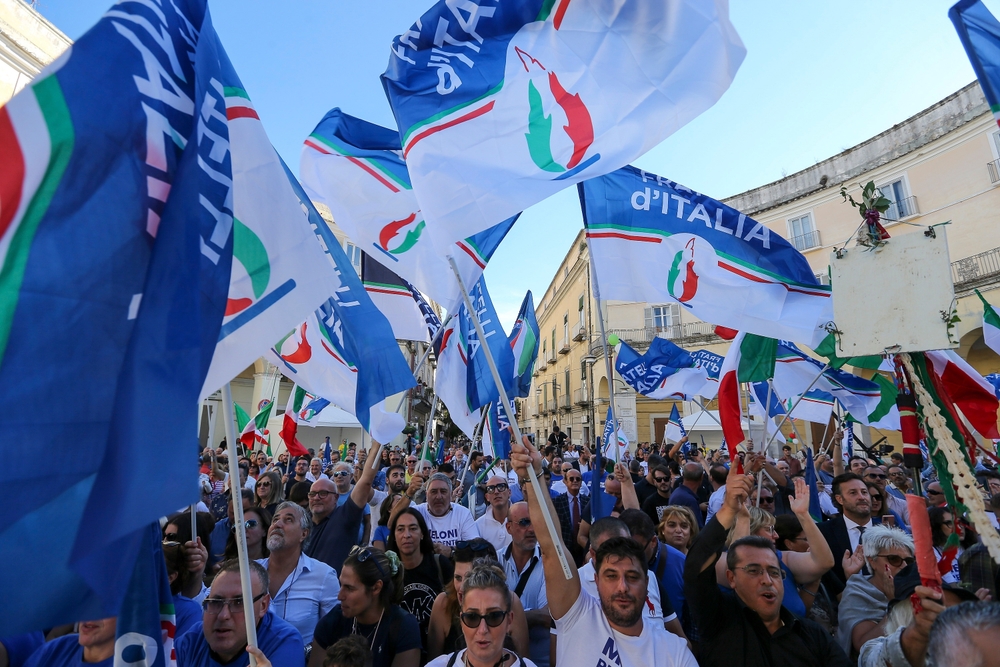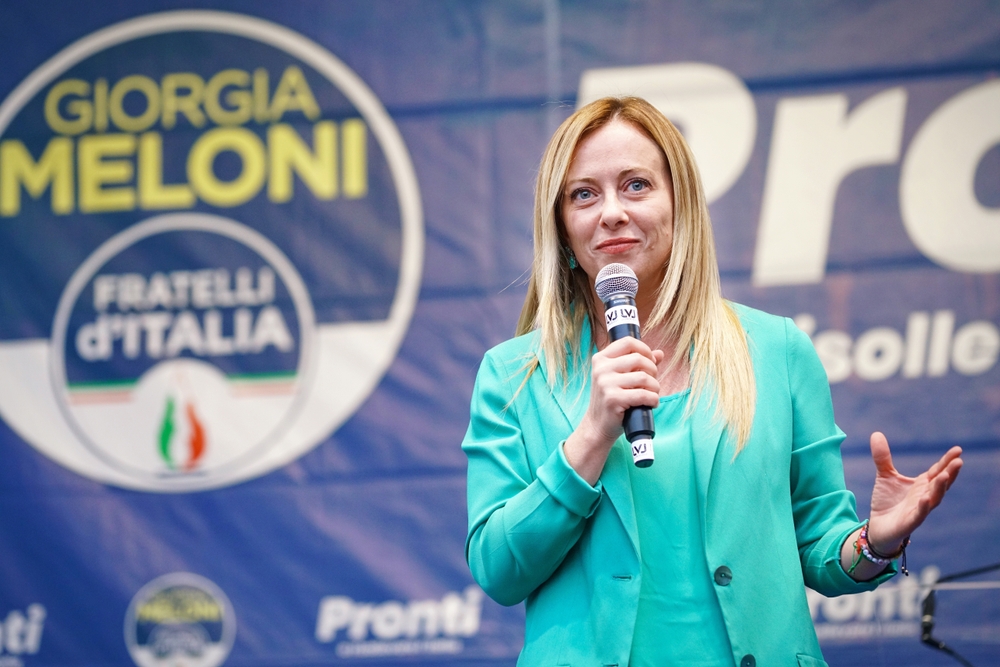On October 22, Italy’s first female prime minister was elected, but Europe welcomes her with mixed feelings. Giorgia Meloni, the leader of the new Italian government, has been defined, at best, as far right. Titles such as “the return of fascism” have appeared in newspapers around Europe. Surely, the party led by Meloni is argued to have a shady relationship with its past. The new prime minister has distanced herself from every form of regime, but her party’s logo still shows the tricolour flame, which comes from a fascist heritage. But are we looking at the rise of extremism in Italy? And how is the future of Italian politics going to influence the rest of the European Union?
Let’s take a step back to see who the main characters of the recent election are. As already stated, Giorgia Meloni is the new head of the government. However, her party Fratelli d’Italia, or “Brothers of Italy” in English, didn’t run alone. The elections were won by a coalition of three parties: Forza Italia, Lega and lastly Meloni’s party, which proved to be the most popular. Because of Italy’s electoral law, which encourages coalitions instead of single parties, and because of the expected overwhelming success of the right-winged parties, the coalition now holds a strong majority in both the Chamber of Deputies and the Senate, the two chambers that constitute the Italian parliament.


Following the elections’ results, Giorgia Meloni was asked to form and lead a new government by the current President Sergio Mattarella on October 22. Even if the voter turnout in Italy reached a historical minimum, with only 64 percent of the eligible population voting on September 25, she, her party, and her ideas were undoubtedly chosen to lead the country for the following years. However, there are still fears around her that are rising, inside and outside of Italy. This concerns her past as well as more recent personal and political history.
Meloni’s career in politics started as a member of Alleanza Nazionale (National Alliance), which had risen from the ashes of the party Movimento Sociale Italiano, that was linked to post-fascist movements, and was a precursor of Fratelli d’Italia. In the last few years, Meloni’s speeches and conservative standpoints have gained attention beyond national borders. Last June, during an assembly of the Spanish party Vox, held in Marbella, she stated, loud and clear, some slogans such as “Yes to the natural family, no to the LGBT lobby, yes to sexual identity, no to gender ideology […], no to Islamist violence, yes to secure borders, no to mass migration […], no to big international finance […], no to the bureaucrats of Brussels!”. That is only one example of why her election as prime minister has led to the rise of worried voices in the international panorama, but of course, it doesn’t end here.
During the last government, led by Mario Draghi, Fratelli d’Italia was the only party not to join the government, thus placing itself in the opposition. This is often the best position to gain votes and approval amongst unsatisfied citizens and, as it has become clearly visible in the recent election, the strategy worked. The party gained support from the part of the population disappointed by a retreating left and a retreating political class: as a matter of fact, the main left-wing party, Partito Democratico (Democratic Party) has lost almost 4 million votes from 2014 , and this year’s turnout shows the population’s detachment towards politics, with a drop of 8,48% in the turnout since the last elections in 2018.
What this means for Italy’s future in concrete terms is difficult to predict.


To talk about the “return of fascism”, a closer look at the different interpretations of fascism is needed. If we refer to the time in Italy from 1922 to 1943 governed by Mussolini as the Duce del Fascismo (leader of fascism), which was characterised by far-right totalitarianism, and which is where the term “fascism” derived from, we are not facing the same circumstances today. Some rather relate it to the concept of post-fascism, which shares some political grounds with its historical predecessor, but is a different phenomenon, which doesn’t work against democracy but rather absorbs some issues coming from a fascist background into their own matters. In this sense, Fratelli d’Italia has more to share with similar international parties than with its historical predecessor.
In Italy, the political discussion has often focused on nationalism and sovereignty, always described as two of the main points of the party during the campaign. The slogan “Italians first” (“prima gli italiani”) was vastly used, and so was the promise to revise the National Recovery and Resilience Plan, which is part of the Next Generation EU, a 750 billion euro fund for European recovery, as well as to reassert Italy’s tech sovereignty. The party’s propaganda, using some populist mantras, insisted on the defence of national borders, speaking about how to reduce illegal migration. The protection of national borders works also on a cultural level: the safeguarding of a national identity through conservative policies.
Italy is not the only country where fascism has come back as a topic of political discussion. Concerns over the rise of far-right parties are present in different countries in Europe, from Italy to Sweden, where a government supported by the far right was recently elected, to Germany where Alternative für Deutschland (Alternative for Germany) is now the main opposition in the Bundestag.
Just like its European pendants, the new Italian government’s line on Europe is coherently nationalistic. Its goal is for Italy’s voice to be heard and to prioritise the nation’s needs instead of Europe’s. But in Italy’s case, this Euroscepticism doesn’t mean leaving the EU but rather taking advantage of it for national purposes. This begs the question of what a Europe looks like in which these nationalistic tendencies spread and win elections. If the tightening of borders and prioritisation of national affairs continues to define EU-member-states’ politics, what then becomes of the Union of Europe?
Eugenia Maestrini








